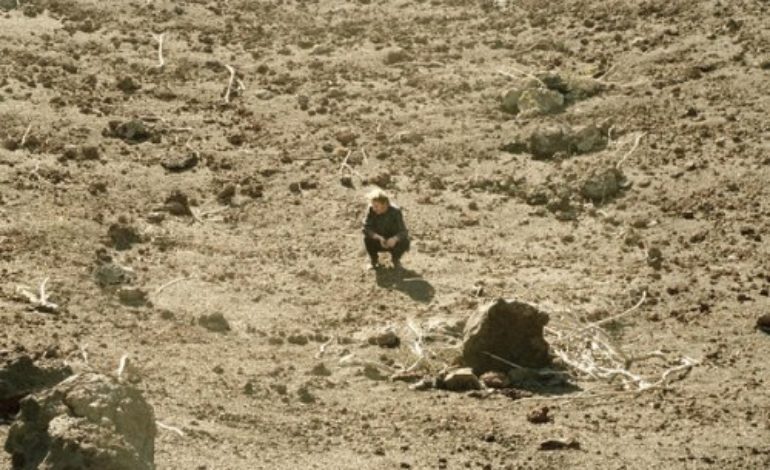

Serenity in the dream
“Has the world gone mad, or is it me?” asks Ben Howard, on his 2014 sophomore effort, I Forget Where We Were. That sentiment whispers throughout the entirety of that album, with the singer-songwriter questioning time and existence—and has matured to lead Howard to one of the important themes on his 2018 follow-up, Noonday Dream.
Few artists have undergone periods of maturation quite like England’s Ben Howard. His progression can be tracked with the three records he’s released thus far: 2011s Every Kingdom introduced the world to his intricate guitar playing and penchant for catchy hook-writing, and was nominated for a Mercury prize; while 2014s I Forget Where We Were presented some contemplative darkness, a certain weightiness to his sound. Both of these records are gorgeous and sweeping in their own right, but when Howard released the first single to his third record, Noonday Dream, (deceptively titled “A Boat To an Island On a Wall”) it was clear that his deeply meditative approach had reached a new height.
Noonday Dream plays just as its title suggests. Cerebral, with a lens as wide as the Atlantic Ocean, this record is a collection of land, sea and dreamscapes that drift into open-ended perpetuity. It’s Howard’s most mature-sounding record to date, with incredible production tinkerings that reward the most sharp-eared listeners. Noonday Dream is lowered into the solitary, murky depths of Howard’s mind, like a fever dream or a dusty walk through the desert (check out the music video for “Nica Libres At Dusk” for an even better visual representation). It’s an engrossing, ephemeral collection of rather lengthy songs, but the tracks on this record are never short of a certain surreal beauty. With instrumentation that floats weightlessly, like the cigar smoke of the aforementioned Nica Libres, the tracks on Noonday Dream dissipate into thin air before you know it.
“Forever, forever is such a beautiful thing,” Howard sings on the steadily building album opener, “Nica Libres At Dusk”—a song that is both mercurial and impossibly defined, as if simultaneously rejecting and embracing time. Of the album’s many alluring lines, this one is delivered quietly underneath guitar effects that actually to sound like birds overhead. The buildup on this track is distinguished by its sheer calmness, despite the weighty subject matter of a narrator aging and life going on without him.
Although it’s one of the shortest tracks on the album, “Towing the Line” packs a lot of textures and atmospheric tension in its barely four-minute length, yet never really seems to take off. “What the Moon Does” shimmers in aqueous production elements, while “The Defeat” sounds like a song from the Drive soundtrack, with sweeping guitar effects that elevate Howard’s lyrics to a mystic height. The reverb and echoing vocals texture this track in surreal ways, as Howard asks, “The world is always at ease, at ease, at ease, don’t you see?”
“There’s Your Man” offers up a more naturally occurring structure, albeit with some chewy guitar parts, that helps to balance out some of the more heavy moments on the album’s A-side. “Murmurations,” the album closer, is a moving soundscape (with some Mogwai overtones) that will linger and bend towards infinity on, like the broken butterfly wings of time.
